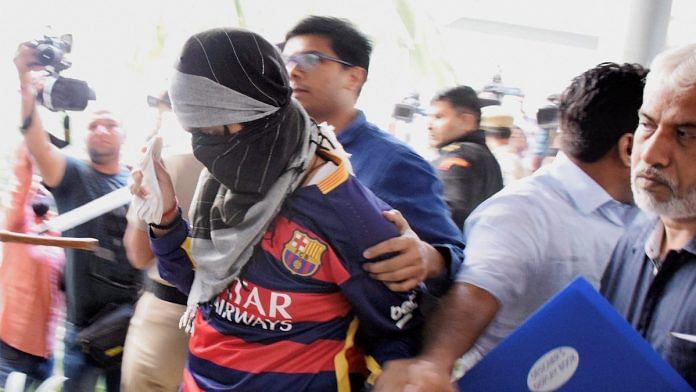Psychologists say these incidents are a result of the reduced ‘family space’ for growing children, suggest more interaction between parents & children.
· March 2018: A 19-year-old student shoots a lecturer in the college staff-room in Pipli, Haryana, after the latter complained to his parents about his talking to a girl in class.
· January: An 18-year-old student guns down his school principal during a parent-teachers meet in Yamunanagar.
· October 2017: A Class XII student of a private school in Bahadurgarh in Jhajjar district stabs his mathematics teacher over 10 times in the head and neck.
· September: A Class XI student of a private school in Gurgaon kills a seven-year-old to ensure that an approaching exam be postponed.
Chandigarh: A series of campus crimes that Haryana has witnessed in the past six months reveals a disturbing trend for which sociologists and psychologists squarely blame the parents of the students involved.
They claim lack of parental attention towards adolescents is leading to this “deviant behavior”. But police officers who have dealt with these cases say that a host of factors and influences go into a young mind turning criminal.
Dr Sunil K. Dhull, assistant professor, sociology Kurukshetra University, says these incidents are a result of the reduced “family space” for growing children.
“In this age these students are undergoing a lot of changes, it is a major transformative stage in their lives. This is the time when they need to be interacted with the most,” said Dhull.
“Parents are giving their growing children facilities, not time. They keep the school-going children busy with tuitions and hobbies without trying to understand them, talk to them leading to alienation,” he added.
Tackling aggressive tendencies
Experts also feel that school teachers should be able to detect aggressive tendencies among students.
“It is rare that a student turns violent one morning. Aggression and intolerant behaviour is quite visible to teachers and that should be detected early and the student should be counseled,” said Dhull.
“These students who have indulged in such violent behavior have no idea of the consequences of their actions. They later regret it but by then it is too late,” added Dhull, an expert in criminology.
Inspector general of police Mamta Singh, however, says a host of complex factors are leading schoolchildren to crime. “There is no doubt that students of this age are spending a large part of their time in school and at home and they remain the biggest influence on his behaviour,” she said.
Apart from this, what the students observe around them, the internet, peer group, everything combines to mould the child at this age.
“A student could be over-sensitive to being treated as inferior than the rest of the class. Teachers unknowingly compare students and react positively to the better students demoralising the ones who are not so good,” Singh said.
“It is important for teachers to identify such children and treat them accordingly,” Singh advised.
Result of unregulated emotions
Dr Nov Rattan Sharma, professor and head, department of psychology at the Maharshi Dayanand University, Rohtak, explains it in different terms.
“These acts are a result of unregulated or unevenly expressed emotions,” he said.
“When a child feels bad about something but is not able to express himself or comprehend it logically within himself, his emotional domain is fractured. That leads to reactions which are disproportionate to what happens next,” Sharma added.
“The emotions are disproportionately released, which they regret later,” he said.
According to Sharma, the solution lies in taking conflicts out of the sphere of the personal.
“Whatever is happening at school or with friends needs to be openly shared and discussed, in families and in communities. It is important to notice erratic behavior in children and resolve it,” he suggested.



